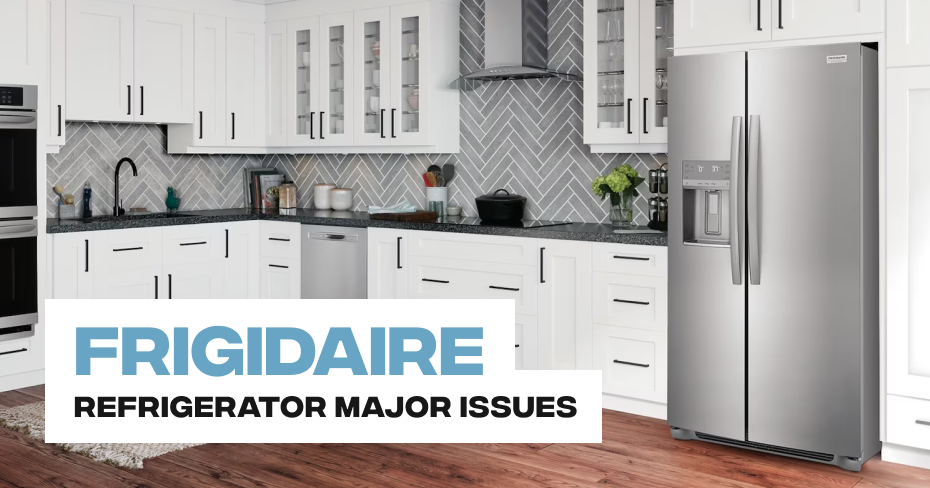
Frigidaire Refrigerator ice maker overflowing
An overabundant ice maker can be just as alarming as when ice smells or tastes bad. Why is your ice maker overflowing? A faulty water inlet valve may be supplying it with too much water. Learn some common reasons for an ice maker making too much ice and how to control the number of your cubes.
Why Is My Ice Maker Overflowing?
While a simple adjustment may be the answer when you find your refrigerator ice maker overflowing, sometimes a malfunction requires a repair. Here’s how to pinpoint the right problem or part failure to stop leaks and spills.
Low Water Pressure
Before investigating an ice maker malfunction, it’s possible your home’s water pressure may be responsible for the ice maker overflowing with ice. If the refrigerator’s water inlet valve doesn’t receive a certain amount of pressure, it may not close all the way. Consequently, water will continue to drip through the valve even when it’s closed, causing the ice maker to overflow.
If the refrigerator’s water dispenser is slow or water flow in your kitchen sink is also reduced, your home’s water pressure may be too low. Make sure your home’s water pressure measures at least 20 psi. If it can’t be adjusted accordingly, larger water pressure issues may require a professional service.
Ice Bucket Positioned Incorrectly
A typical ice maker uses a wire arm or sensor to determine when the ice bucket is full. Once the arm or sensor is triggered, ice production stops to prevent overflowing. If your ice bucket isn’t properly positioned, these devices may not sense when it’s full. Consequently, the ice maker keeps making ice even if the bucket is overflowing.
Refer to your refrigerator’s user manual to make sure the bucket is positioned correctly so ice levels can be accurately measured.
Defective Water Inlet Valve
The refrigerator’s water inlet valve opens and closes as needed, allowing water to flow from your home’s supply to the ice maker. If the valve is damaged or fails electronically, it won’t open or close properly. If the valve is stuck in the closed position, you’ll notice your refrigerator ice maker not producing ice at all. However, if it’s open all the time, even slightly, you’ll find your refrigerator ice maker overflowing from a constant supply of water.
If you suspect that the water inlet valve is defective, it should be assessed and replaced by a professional repair service.
Faulty Ice Maker Components
If all else fails, it’s possible that faulty parts may be responsible for your refrigerator ice maker overflowing. Some ice makers have a wire arm that extends across the top of the ice bucket. When ice reaches the top of the bucket, it pushes the arm up, stopping production. If the arm is broken, it won’t move when ice reaches the top and the ice maker will continue producing ice. A damaged shut-off arm must be replaced.
Similarly, other ice makers have an internal shut-off switch that stops production when enough ice is made. If the switch becomes dirty or damaged, it may not halt ice production, causing the bucket to overflow. While the ice maker can be dismantled to assess and clean the switch, if multimeter testing shows no continuity, it requires replacement. A switch that’s hard to access or another faulty component may require replacement of the entire ice maker assembly.
Schedule Appointment